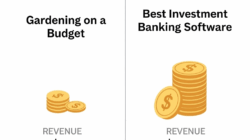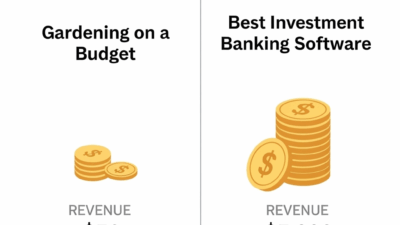Hey there, digital adventurers! If you’re venturing into the vast online landscape, understanding the concept of SEO (Search Engine Optimization) is like having a treasure map to boost your online presence. In this comprehensive article, we’re going to unravel the mysteries of SEO, providing you with the knowledge and tools to navigate the complex world of search engines and climb the rankings.
What is SEO (Search Engine Optimization)?
SEO stands for “Search Engine Optimization.” It is a set of techniques and strategies used to improve the visibility and ranking of a website or web page in search engine results pages (SERPs). The primary goal of SEO (Search Engine Optimization) is to increase organic (non-paid) traffic to a website, making it more accessible and relevant to users searching for specific information, products, or services online.
The foundation of SEO lies in understanding how search engines determine the order of search results. Search engines use complex algorithms that analyze various factors to deliver the most relevant and valuable content to users. Some key elements that influence rankings include:
- Content Relevance
Search engines crawl and index the content of websites to determine its relevance to users’ queries. By creating high-quality, informative, and keyword-rich content, you increase the chances of ranking higher in search results. - On-Page Optimization
From titles and headings to meta descriptions and alt tags, optimizing various on-page elements sends signals to search engines about the relevance and quality of your content. - Backlinks
Search engines consider the number and quality of websites linking back to your page as a vote of confidence. Acquiring backlinks from reputable sources can boost your website’s authority and improve its ranking. - User Experience
Search engines value websites that provide a seamless user experience. Factors such as page loading speed, mobile-friendliness, and easy navigation contribute to your website’s overall ranking.

Why is SEO Important?
SEO (Search Engine Optimization) is crucial for several reasons, as it plays a fundamental role in the online visibility, success, and sustainability of websites and businesses. Here are some key reasons why SEO (Search Engine Optimization) is important:
- Increased Organic Traffic
SEO (Search Engine Optimization) helps websites rank higher in search engine results pages (SERPs) for relevant keywords and phrases. When your site appears at the top of search results, it’s more likely to receive organic (non-paid) traffic. This can lead to a significant increase in website visitors. - Improved Visibility
Most users tend to click on the top search results when looking for information or products online. By optimizing your website for search engines, you increase its visibility and the likelihood that users will discover your content or offerings. - Credibility and Trust
Websites that appear in top search results are often perceived as more credible and trustworthy by users. SEO can help establish your website as an authority in your niche or industry, which can lead to higher user trust and confidence. - Cost-Effective Marketing
Compared to paid advertising and other forms of online marketing, SEO can be cost-effective in the long run. Once your site is well-optimized and ranks well, you can continue to attract organic traffic without ongoing advertising expenses. - User Experience (UX) Improvement
SEO involves optimizing the technical and user experience aspects of your website, such as site speed, mobile-friendliness, and content quality. A better UX not only helps with SEO but also keeps visitors engaged and reduces bounce rates. - Targeted Traffic
SEO allows you to target specific keywords and phrases that are relevant to your business or content. This means you attract users who are actively searching for what you offer, increasing the chances of conversion. - Competitive Advantage
If your competitors are investing in SEO and ranking higher in search results, not doing the same can put you at a significant disadvantage. SEO helps level the playing field and enables smaller businesses to compete with larger ones online. - Global Reach
For businesses with a global or national audience, SEO can help reach a wide and diverse user base. You can optimize your content for different locations and languages, expanding your reach. - Measurable Results
SEO efforts can be tracked and measured using various analytics tools. You can gain insights into website traffic, user behavior, and keyword performance, allowing you to refine your strategies for better results. - Adaptation to User Behavior
People increasingly use search engines to find information, products, and services. SEO allows you to align your online presence with user behavior and trends, ensuring that you remain relevant to your target audience. - Long-Term Strategy
While SEO requires ongoing maintenance and adaptation, it can provide long-term benefits. Once you establish a strong online presence and reputation, it becomes more difficult for competitors to displace you from top search positions. - Enhanced Mobile Presence
With the growth of mobile device usage, mobile SEO is critical for reaching users on smartphones and tablets. A mobile-optimized site can improve user experience and search engine rankings.
In summary, SEO (Search Engine Optimization) is essential because it helps drive organic traffic, enhances online visibility, builds trust and credibility, and provides a cost-effective marketing strategy. It is a fundamental component of digital marketing and plays a crucial role in the success of websites and businesses in the competitive online landscape.

How Many Types of SEO (Search Engine Optimization) Are There?
SEO (Search Engine Optimization) can be broadly categorized into several types or approaches, each focusing on different aspects of optimizing a website or online presence for search engines. Here are the main types of SEO:
- On-Page SEO:
- Content Optimization: This involves optimizing the content on individual web pages to make it more relevant and valuable to users and search engines. This includes keyword optimization, quality content creation, and proper formatting.
- Meta Tags: Optimizing meta titles and meta descriptions to improve click-through rates and keyword relevance.
- Header Tags (H1, H2, H3, etc.): Properly structuring and using header tags to organize content and signal its importance.
- Image Optimization: Optimizing images for faster loading times and including descriptive alt tags.
- URL Structure: Creating user-friendly and keyword-rich URLs.
- Off-Page SEO:
- Link Building: Acquiring high-quality backlinks from authoritative websites to improve the website’s authority and trustworthiness.
- Social Signals: Building a strong social media presence and encouraging social sharing of content.
- Online Reputation Management (ORM): Monitoring and managing online reviews and mentions to maintain a positive online reputation.
- Technical SEO:
- Site Speed: Optimizing website loading times for better user experience and search engine ranking.
- Mobile Optimization: Ensuring that the website is mobile-friendly and performs well on various devices.
- Crawlability: Ensuring that search engine bots can crawl and index all website pages.
- Schema Markup: Adding structured data to web pages to provide more context to search engines.
- Site Architecture: Structuring the website in a logical and user-friendly way.
- Local SEO:
- Google My Business: Optimizing and managing a Google My Business profile for local businesses.
- Local Citations: Ensuring consistent and accurate business information (Name, Address, Phone Number) across online directories.
- Local Content: Creating content that is geographically relevant to the target audience.
- E-commerce SEO:
- Product Optimization: Optimizing product listings with detailed descriptions, images, and user reviews.
- Category Structure: Organizing products into logical categories and hierarchies.
- User Reviews and Ratings: Encouraging and managing customer reviews and ratings.
- Voice SEO:
- Optimizing content to cater to voice search queries, which often involve natural language and longer-tail keywords.
- Providing concise and direct answers to common voice search questions.
- Video SEO:
- Optimizing video content on platforms like YouTube, including keyword optimization, video descriptions, and engagement metrics.
- International SEO:
- Optimizing websites for multiple languages and regions to target a global audience.
- Using hreflang tags to indicate language and regional targeting to search engines.
- App Store Optimization (ASO):
- Optimizing mobile apps’ visibility and discoverability on app stores like Google Play and the Apple App Store.
- Negative SEO Prevention:
- Monitoring and protecting against negative SEO attacks, such as spammy backlinks or negative reviews, that could harm a website’s ranking.
- Enterprise SEO:
- SEO strategies tailored for large corporations and organizations with complex websites and multiple online properties.
- Content SEO:
- Focusing on creating high-quality, valuable, and relevant content that attracts organic traffic and engages users.
Each type of SEO may require different strategies, tactics, and considerations, depending on the specific goals and characteristics of a website or online presence. Successful SEO often involves a combination of these types to achieve the best results.
How Many SEO (Search Engine Optimization) Components Are There?
SEO (Search Engine Optimization) consists of several key components, or elements, that work together to improve a website’s visibility and ranking in search engine results pages (SERPs). While the specific components and techniques may vary depending on the SEO strategy and goals, here are the main SEO components:
- Keyword Research:
- Identifying relevant keywords and phrases that users are likely to search for when seeking information, products, or services related to your website’s content.
- On-Page SEO:
- Content Optimization: Creating high-quality, relevant, and engaging content that incorporates target keywords and provides value to users.
- Meta Tags: Optimizing meta titles and meta descriptions to improve click-through rates and keyword relevance.
- Header Tags (H1, H2, H3, etc.): Properly structuring content with header tags to improve readability and SEO.
- Keyword Usage: Strategically incorporating target keywords into content, headings, and other on-page elements.
- Internal Linking: Creating a logical internal linking structure to help search engines understand the website’s hierarchy and relationships between pages.
- Off-Page SEO:
- Link Building: Acquiring high-quality backlinks from authoritative and relevant websites to improve the website’s authority and trustworthiness.
- Social Signals: Building a strong social media presence and encouraging social sharing of content.
- Online Reputation Management (ORM): Monitoring and managing online reviews, mentions, and discussions to maintain a positive online reputation.
- Technical SEO:
- Site Speed: Optimizing website loading times for better user experience and search engine ranking.
- Mobile Optimization: Ensuring that the website is mobile-friendly and performs well on various devices.
- Crawlability: Ensuring that search engine bots can easily crawl and index all website pages.
- Schema Markup: Adding structured data to web pages to provide more context to search engines.
- Site Architecture: Structuring the website logically and user-friendly with a sitemap.
- Local SEO:
- Google My Business: Optimizing and managing a Google My Business profile for local businesses.
- Local Citations: Ensuring consistent and accurate business information (Name, Address, Phone Number) across online directories.
- Local Content: Creating content that is geographically relevant to the target audience.
- Content Creation and Optimization:
- Quality Content: Creating valuable and engaging content that meets user intent and provides solutions or information.
- Keyword-Driven Content: Developing content around target keywords and topics that align with user search queries.
- Content Updates: Regularly updating and refreshing content to keep it relevant and up-to-date.
- User Experience (UX):
- Mobile-Friendliness: Ensuring that the website is responsive and performs well on mobile devices.
- Page Speed: Optimizing loading times for faster page rendering.
- Navigation and Usability: Improving website navigation and user interface to enhance the user experience.
- Analytics and Monitoring:
- Using tools like Google Analytics and Google Search Console to track website traffic, user behavior, keyword performance, and other SEO metrics.
- Link Management:
- Monitoring and managing both internal and external links to ensure they are up to date and relevant.
- Site Security:
- Implementing security measures, such as SSL certificates, to protect the website and user data.
- Structured Data:
- Adding schema markup and structured data to provide additional context to search engines and enhance rich snippets in search results.
- Local Optimization:
- Optimizing for local search, including managing business listings, reviews, and ensuring local relevance.
These SEO components work together to create a comprehensive strategy for improving a website’s visibility, attracting organic traffic, and achieving higher rankings in search engine results. The specific emphasis on each component may vary depending on the website’s goals and target audience.
Optimizing Your Website
Now that you have a grasp on the fundamental principles of SEO, it’s time to optimize your website to improve its visibility and organic traffic. Here are some essential steps to get you started:
- Keyword Research
Identify the keywords and phrases your target audience is likely to search for. Use tools like Google Keyword Planner or SEMrush to find relevant keywords with high search volume and low competition. - On-Page Optimization
Incorporate selected keywords strategically in your website’s titles, headings, meta descriptions, and content. However, avoid keyword stuffing, as search engines may penalize you for it. - High-Quality Content
Create engaging, original, and informative content that caters to your target audience’s needs. Valuable content attracts more visitors and encourages them to spend more time on your website. - Mobile-Friendly Design
As mobile devices dominate internet usage, ensure your website is optimized for mobile viewing. Responsive design allows your site to adapt seamlessly to different screen sizes, providing an excellent user experience. - Link Building
Invest time in acquiring high-quality backlinks from reputable websites. This can be accomplished through guest blogging, influencer outreach, or partnerships with relevant industry sources. - Analyze and Adapt
Use tools like Google Analytics and Search Console to monitor your website’s performance. Analyze user behavior, identify areas of improvement, and make necessary adjustments to your SEO strategy.

Recommended SEO Plugins for WordPress
WordPress offers a wide range of SEO plugins that can help website owners optimize their content and improve their search engine rankings. Here are five recommended SEO plugins for WordPress:
- Yoast SEO:
- Key Features: Yoast SEO is one of the most popular and comprehensive SEO plugins for WordPress. It offers features like on-page content analysis, XML sitemap generation, meta tag optimization, and readability analysis. It also provides a snippet preview to see how your content will appear in search results.
- Additional Features: Yoast SEO includes tools for managing breadcrumbs, setting canonical URLs, and controlling robots meta tags. It also offers integration with social media platforms and supports multiple languages.
- Free and Premium Versions: Yoast SEO is available as both a free and premium plugin. The premium version includes advanced features like multiple focus keywords and redirect management.
- All in One SEO Pack:
- Key Features: All in One SEO Pack is another popular SEO plugin that offers a wide range of optimization features, including XML sitemap support, Google AMP support, and automatic generation of meta tags. It also includes social media integration and support for e-commerce SEO.
- User-Friendly: The plugin is known for its user-friendly interface, making it suitable for beginners as well as experienced users.
- Free and Premium Versions: All in One SEO Pack offers both free and premium versions. The premium version adds features like WooCommerce SEO support and local SEO.
- Rank Math:
- Key Features: Rank Math is a powerful and feature-rich SEO plugin that offers on-page SEO analysis, XML sitemap generation, redirection management, and rich snippets support. It provides a user-friendly setup wizard to help you configure SEO settings.
- Integration: Rank Math integrates with Google Search Console, making it easy to monitor website performance in search results.
- Free and Premium Versions: Rank Math offers a free version with robust features, and a premium version with additional capabilities.
- SEOPress:
- Key Features: SEOPress is a user-friendly SEO plugin that offers features like on-page content analysis, XML sitemap creation, Google Analytics integration, and social media optimization. It also provides easy access to important SEO settings.
- Customization: SEOPress allows users to customize their metadata, schema markup, and open graph settings. It also includes redirection and 404 error monitoring.
- Free and Premium Versions: SEOPress has a free version with extensive functionality and a premium version for advanced features.
- The SEO Framework:
- Key Features: The SEO Framework is a lightweight and efficient SEO plugin that focuses on essential optimization tasks. It provides automated SEO solutions for titles, meta descriptions, and social media metadata.
- Minimalist Approach: This plugin is known for its minimalistic and uncluttered interface, making it easy to use for those who prefer a simplified SEO setup.
- Free with Extensions: The SEO Framework is free to use, and additional extensions are available for specific needs, such as local SEO and AMP support.
Choosing the right SEO plugin for your WordPress website depends on your specific requirements, preferences, and level of expertise. These recommended plugins cover a range of features and capabilities to help you improve your website’s SEO.
Recommended SEO Plugins for Joomla
Joomla is another popular content management system (CMS) like WordPress, and it also offers various SEO extensions to help optimize websites for search engines. Here are five recommended SEO plugins for Joomla:
- sh404SEF:
- Key Features: sh404SEF is one of the most comprehensive SEO extensions for Joomla. It offers features like SEF (Search Engine Friendly) URL management, meta tag optimization, and canonical URL management. It also provides a variety of SEO-related options and tools to enhance your website’s search engine visibility.
- Customization: The extension allows for extensive customization of URL structures, meta data, and redirects.
- Monitoring: sh404SEF includes monitoring and diagnostic tools to help you identify and fix SEO issues on your Joomla website.
- JoomSEF:
- Key Features: JoomSEF is another popular SEO extension for Joomla, offering SEF URL management, meta data optimization, and social media metadata configuration. It helps improve the overall search engine friendliness of your Joomla website.
- User-Friendly: JoomSEF is known for its user-friendly interface and ease of use, making it suitable for users with varying levels of technical expertise.
- Compatibility: It is compatible with a wide range of Joomla extensions and templates.
- RSSEO!:
- Key Features: RSSEO! is a dedicated SEO extension for Joomla that provides comprehensive SEO features such as SEF URL management, meta tag optimization, and XML sitemap generation. It includes a keyword analyzer and a built-in monitoring system to track your website’s SEO performance.
- Content Optimization: The extension offers content optimization suggestions and tools to improve your website’s search engine ranking.
- Compatibility: RSSEO! is compatible with Joomla 3.x.
- Joomla SEO by NoNumber (formerly known as Advanced SEO by Artio):
- Key Features: This Joomla SEO extension offers a range of SEO tools and features, including SEF URL management, meta tag optimization, and 301/302 redirects. It allows for the customization of SEO settings for individual articles and menu items.
- Customizable URL Structures: You can customize URL structures for different content types and categories.
- User-Friendly: It provides an intuitive user interface for managing SEO settings.
- EFSEO (Easy Frontend SEO):
- Key Features: EFSEO is a simple yet effective SEO extension for Joomla. It focuses on providing essential SEO features like SEF URL management, meta tag optimization, and canonical URL support. It also integrates with Joomla’s core features for convenient SEO management.
- Lightweight: EFSEO is known for its lightweight and efficient design, making it a good choice for users who prefer a straightforward SEO solution.
- Free: This extension is available for free, which can be a cost-effective option for smaller websites.
When choosing an SEO extension for Joomla, consider your specific SEO needs, the size and complexity of your website, and your familiarity with Joomla’s CMS. These recommended extensions offer various features and capabilities to help you optimize your Joomla website for search engines.
Best SEO Checking Sites
There are several excellent SEO checking websites and tools available that can help you analyze and improve your website’s search engine optimization. Here are five of the best SEO checking sites and tools:
- Google Search Console:
- Key Features: Google Search Console is a free tool provided by Google that allows you to monitor and manage your website’s presence in Google’s search results. It provides valuable insights into your website’s performance, indexing status, search queries, and more.
- Benefits: Google Search Console helps you identify and fix issues that may affect your site’s visibility on Google, such as indexing problems, mobile usability issues, and security concerns.
- Link: Google Search Console
- Google PageSpeed Insights:
- Key Features: PageSpeed Insights by Google evaluates the speed and performance of your website on both desktop and mobile devices. It provides recommendations for improving page load times and user experience.
- Benefits: A fast-loading website is essential for user satisfaction and SEO rankings, and PageSpeed Insights helps you identify areas for improvement.
- Link: Google PageSpeed Insights
- Moz:
- Key Features: Moz offers a suite of SEO tools, including a website crawler, keyword research, rank tracking, and more. Moz’s Site Crawl provides insights into technical SEO issues, and their Keyword Explorer helps you find valuable keywords to target.
- Benefits: Moz provides comprehensive SEO analysis and recommendations to help you improve your website’s search engine rankings.
- Link: Moz
- SEMrush:
- Key Features: SEMrush is a versatile SEO tool that offers features like site auditing, keyword tracking, competitive analysis, and backlink analysis. It provides insights into your website’s organic search performance and helps you identify areas for improvement.
- Benefits: SEMrush is a powerful tool for competitive research and keyword analysis, allowing you to fine-tune your SEO strategy.
- Link: SEMrush
- Ahrefs:
- Key Features: Ahrefs is a comprehensive SEO toolset that includes site auditing, keyword research, rank tracking, and backlink analysis. Ahrefs’ Site Audit tool checks for technical SEO issues and provides actionable recommendations.
- Benefits: Ahrefs is particularly known for its backlink analysis capabilities, helping you understand your website’s link profile and identify link-building opportunities.
- Link: Ahrefs
These SEO checking sites and tools offer a range of features to help you assess, monitor, and improve your website’s SEO performance. Depending on your specific needs and preferences, you can choose the one that best suits your requirements and budget. Many of these tools offer both free and premium plans, allowing you to get started with basic SEO analysis at no cost.
Conclusion
Congratulations! You have successfully unlocked the secrets of SEO and gained a valuable understanding of how to optimize your website for better visibility. Remember, SEO (Search Engine Optimization) is an ongoing process that requires continuous adaptation and improvement. Stay up-to-date with the latest SEO trends and algorithm changes to maintain your competitive edge.
By consistently implementing the techniques discussed in this guide, your website can rise through the ranks and attract more organic traffic. Whether you are a small business wanting to expand your online presence or an aspiring blogger seeking a wider audience, investing in SEO (Search Engine Optimization) is a surefire way to achieve your goals.
So, what are you waiting for? Dive into the world of SEO and unlock the true potential of your website. Start implementing these strategies today and watch your online presence soar to new heights!







